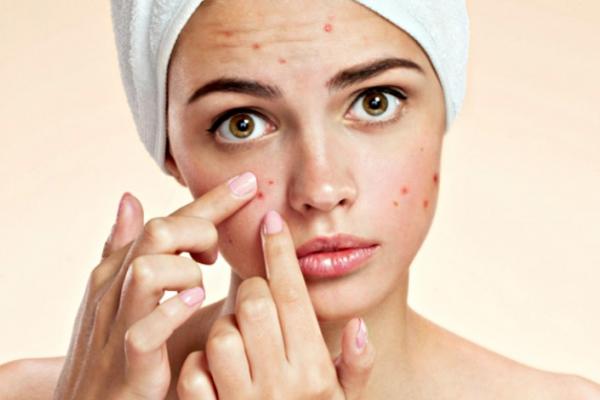Acne vulgaris is a common chronic skin condition that most frequently affects the face, back, and chest area. Acne occurs most often in adolecents, but it is also seen in adulthood. It presents itself in the form of open (blackheads) and closed (whiteheads) clogged pores.
What Causes Acne Vulgarus?
Acne occurs when skin follicles (pores) become blocked or inflamed. Sebum is an oily substance that is made by the sebaceous glands that helps keep hair and skin moisturized. Hormone changes during the teenage years cause the body to make more of this oily substance, clogging the follicles. A pimple eventually forms. Bacteria can get inside the follicle or oil gland and cause redness, swelling, and pus.
Many factors can bring on or worsen acne. These include:
Family history
Cigarette smoking
Hot and humid conditions
Irritation or friction caused by wearing tight clothes
Using oil-based skin and hair products
Prolonged sweating
Emotional stress
Certain medications
What Can I Do to Prevent Acne or Make It Better?
There are several things you can do to help prevent acne and lessen breakouts.
Wash your face at least twice a day with a gentle nondrying cleanser. Avoid scrubbing your face because this can make the condition worse.
Use noncomedogenic and oil free cosmetics, moisturizers, and sunscreens.
Do not touch, pop, squeeze, or pick at pimples.
What Can I Do to Treat my Acne?
There are many products available to effectively treat acne. Topical agents are most commonly used to treat mild cases. Many of these products are available without a prescription and include benzoyl peroxide, salicylic acid, and most recently Differin (adapalene gel 0.1%).
Some people may have a reaction to these products. Try a small amount on a limited area first before applying to larger areas. Most topical products can cause local irritation and dryness, which can be prevented by using mild moisturizing soaps and lotions.
Other products require a prescription. Topical antibiotics may be prescribed alone or in combination with benzoyl peroxide. Other topical products include tretinoin and adapalene gel 0.3%. For more severe cases of acne, oral medications may be prescribed, which include isotretinoin and oral antibiotics used in combination with topical products. Women who take isotretinoin must follow strict rules to avoid prenancy because the drug can cause severe birth defects.
What Can I Expect From Treatment?
Sometimes acne will get worse during the first few weeks of treatment. It will get better as treatment is continued, although it may take upto 8 weeks to see improvement. If you do not notice improvement after 3 months of use, or if you have moderate to severe acne, speak with your primary care provider or dermatologist about treatment options. Once acne is cleared, treatment should be continued to prevent further breakouts.
Source: US Pharmacist


thanks for sharing the informative post.